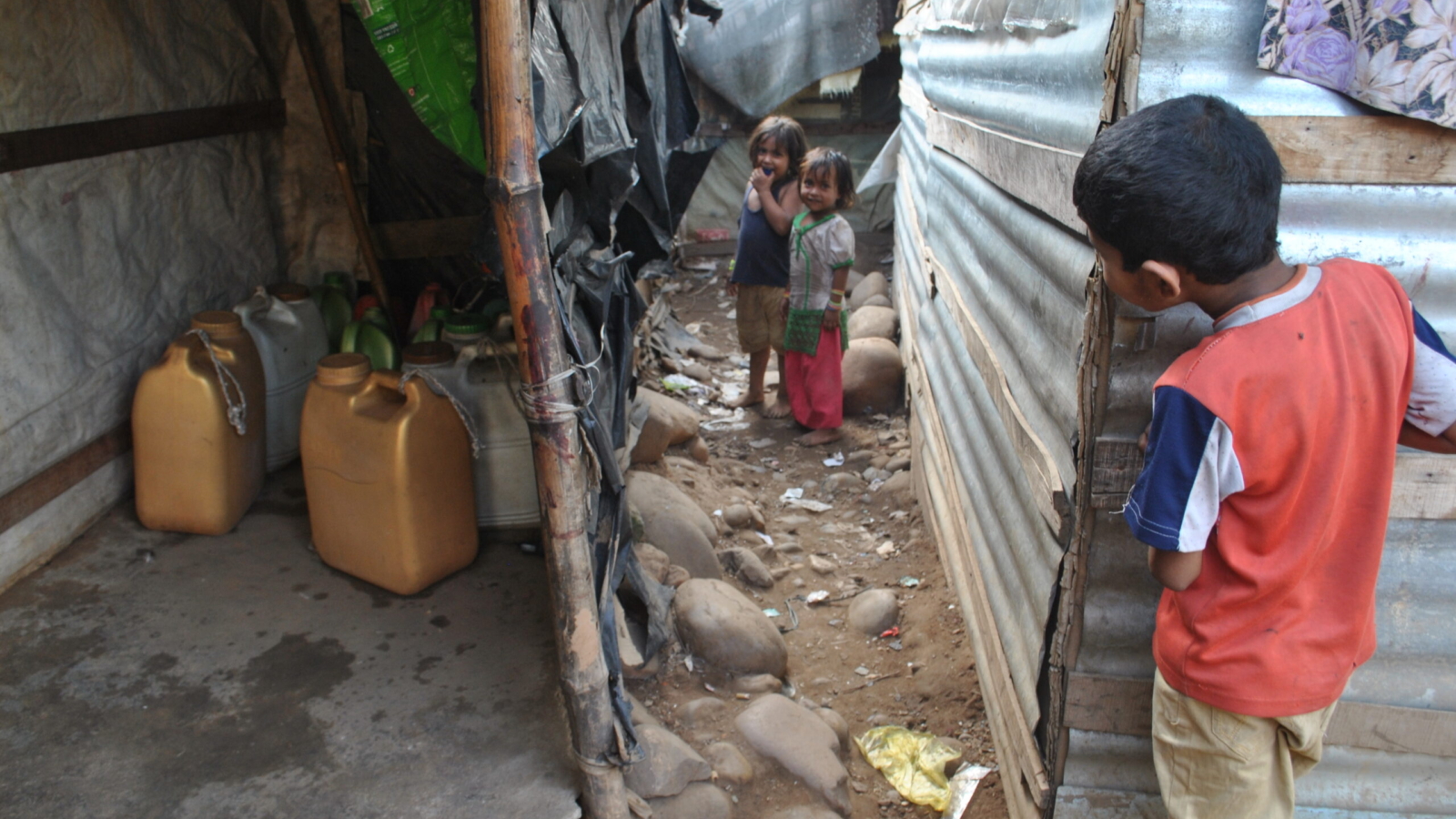By Rohini Mohan
In the center of a ramshackle snack shop in the Narwal settlement in Jammu, India, 10-month-old Shafiqa sat atop a plastic coffee table and clapped her hands. Her grandfather Mohammad Rafik, who had just poured eggs into oil smoking on a wok on the stove, shot a quick look at her and yelled in Rohingya, “Wait for two minutes, you bossy monster!”
It was nearly 1 p.m. on a Friday, and Rafik had work to finish before afternoon prayer. A shirtless 6-year-old sucking on an orange popsicle walked confidently inside and lifted Shafiqa to his waist. “I’ll watch over this one and the shop, uncle,” he offered.
Nearby, the grocery store, fish stall, and barbershop were hurriedly closing up. As men in skullcaps rushed to the mosque, the six shops and more than 100 shops in the Rohingya refugee settlement suddenly seemed taken over by children, little guardians of the limited but precious possessions their elders had gathered bit by bit since fleeing Myanmar years earlier. Mothers and aunts sat in a tea shop, their eyes glued to a small television playing the Hindi-dubbed version of Crouching Tiger, Hidden Dragon. “Timepass,” said a 19-year-old woman, using the Indian-English word for killing time. “We learn Hindi this way.” Her sister, who was nursing an infant next to her, scoffed. “I’m not sure there is a point anymore—India might kick us all out anyway.”
Rohingyas have entered India and Bangladesh in a trickle since the 90s, fleeing persecution from the Myanmar army and government, which increased after the Buddhist-majority country effectively revoked their citizenship in 1982. Myanmar not only refuses to recognize Rohingya citizens but actively discriminates against them: They are denied education, health care, and voting rights; are prevented from freely practicing Islam or Hinduism; and are regularly subject to arson, violence, and harassment from the military. Nearly a million Rohingyas have abandoned their homes. Most would reach Bangladesh, which borders Myanmar, by foot or on overcrowded boats, and over the past 10 years a few thousand continued into India. In a three-week period between August and September 2017, following massacres in Myanmar’s western Rakhine state, the U.N. High Commissioner for Refugees says more than half a million Rohingyas made the perilous journey into Bangladesh. The U.N. calls them “the world’s most persecuted community.”
* * *
* * *
Rohini Mohan is a political journalist based in India and the author of The Seasons of Trouble (Verso, 2014).
[Photo by Rohini Mohan]* * *
